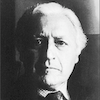- 30 Aug 2007 03:57
#1310184
How much truth is there to the idea that at least a certain amount of Germans were under the influence of German propaganda, and therefore not active parts of the machine itself? Was it a matter of too many people being weak, and afraid to stand up, or was it a matter of Hitler having SUPPORT from the majority of the population? Majority support is not required to run a dictatorship if team-work is utilized by the people in power. Once in power, the dictator uses propaganda and brainwashes his subjects. The Bolsheviks certainly took power in Russia without majority support. Did Hitler simply outmaneuver his opponents and use underhand tactics to gain power, or did the people freely support him, in such a way that he did not have to use any deception? Would the people have supported him, if they didn't fear for their own lives? It's possible to create a climate of fear in which people won't speak up, and it's possible for many people to simply be apolitical. Of course a certain amount would have, but I'm asking about the majority.
My personal take is that Hitler had about 40% support, and muscled his way into power, systematically eliminating dissidents, and forcing many Germans to follow him. Is this view wrong?
My personal take is that Hitler had about 40% support, and muscled his way into power, systematically eliminating dissidents, and forcing many Germans to follow him. Is this view wrong?
Last edited by Metal Gear on 30 Aug 2007 04:24, edited 1 time in total.




















 - By Pants-of-dog
- By Pants-of-dog - By Deutschmania
- By Deutschmania - By JohnRawls
- By JohnRawls